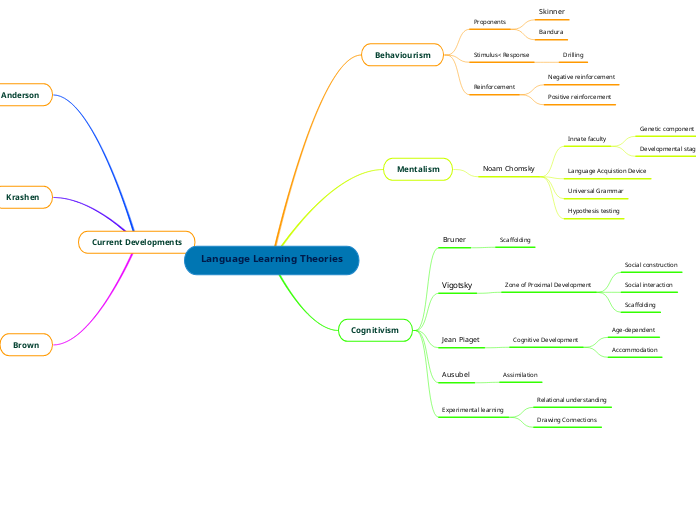Language Learning Theories

Current Developments
Brown
Implicit learning
memorized language
rote learning
Procedural knowledge
Language Acquisition
Unconscious process
Explicit learning
rule created
Noticing
Declarative knowledge
Conscious process
Krashen
Language learning
Affective filter
Error correction
Natural order
Language acquisition
Input understanding
Subconsious process
Anderson
Memory
contextual factors
intentional focus
directed attention
Language Learning Theories
Cognitivism
Experimental learning
Drawing Connections
Relational understanding
Ausubel
Assimilation
Jean Piaget
Cognitive Development
Accommodation
Age-dependent
Vigotsky
Zone of Proximal Development
Social interaction
Social construction
Bruner
Scaffolding
Mentalism
Noam Chomsky
Hypothesis testing
Universal Grammar
Language Acquistion Device
Innate faculty
Developmental stages
Genetic component
Behaviourism
Reinforcement
Positive reinforcement
Negative reinforcement
Stimulus< Response
Drilling
Proponents
Bandura
Skinner

